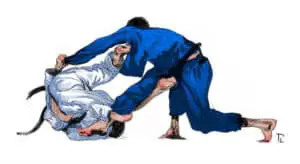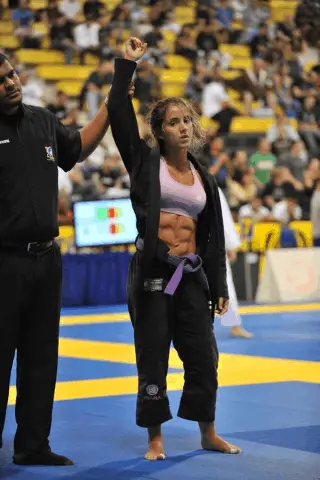
BJJ is an intense full contact martial art. It is an all over body workout which will stress your arms, backs, core, legs and neck. Not only will it test out your muscular strength it will also put your cardio endurance on display. Even though BJJ athletes require athletic preparedness to thrive should you wait until you are a crossfit champion or just dive right in?
Do You Need To Be Fit Before You Start BJJ?
A basic level of fitness will help when starting BJJ. You will be able to complete the warm up, have enough energy to drill the techniques and be able to spar more effectively. You shouldn’t put off starting BJJ due to being unfit as by training BJJ you will quickly (2/3 months) develop the necessary fitness.
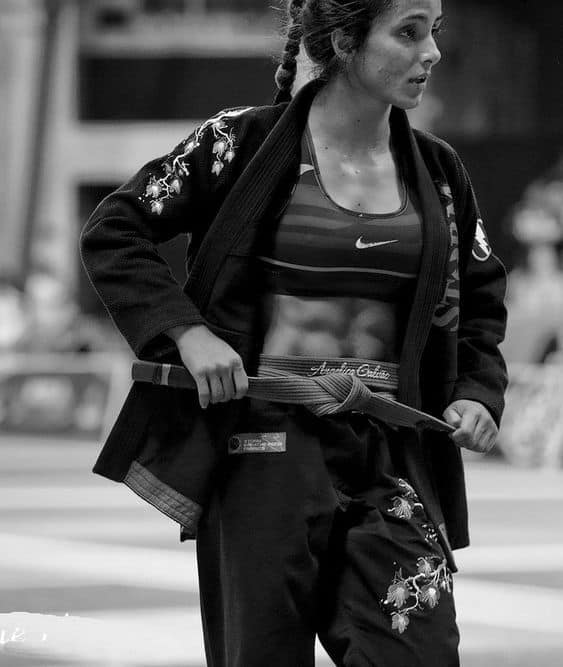
Why Fitness Is Important For BJJ?
BJJ is a highly technical sport made up of thousands of techniques. Athletes learn these techniques best when they are fresh. If you are unfit and get exhausted after the warm up you will struggle to ingrain the movements into your mind. This will prevent you from progressing and earning your next belt.
When would you prefer to learn a new skill when you are calm, relaxed and fresh or when you are exhausted, struggling to breathe and have a rapid heart rate? The obvious answer is the first scenario.
However, many unfit BJJ athletes find themselves in scenario B. They are not in great shape and decide to sign up at their local BJJ gym for a new physical challenge and to hopefully shed some unwanted pounds.
The result is halfway through the warm up which typically consists of jogging, animal movements, basic gymnastics and calisthenics these new BJJ recruits are ready to call it a night. They then have to push themselves through just to complete the warm up.
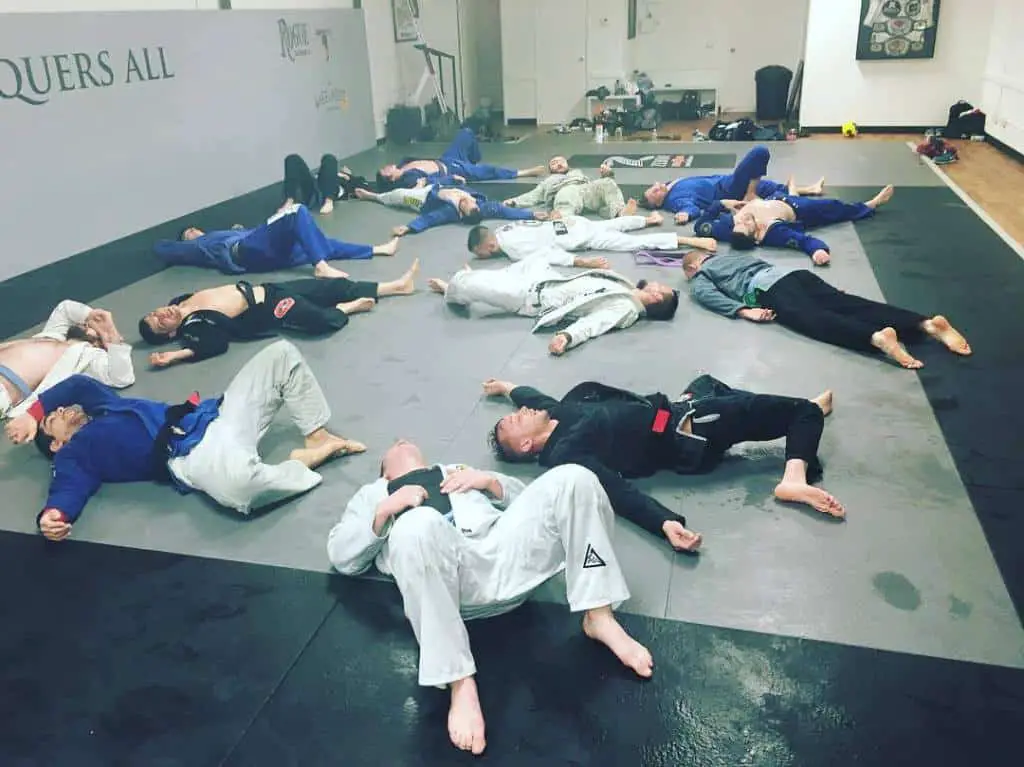
By the time they get to the most important part of the class, learning BJJ techniques (known as drilling) they are too tired to concentrate and perform the movements. It is hard enough to learn new athletic movements when you are fresh but forget about it when you are exhausted.
These new athletes will struggle through the drilling phase of training, failing to absorb any technical knowledge and most likely performing the movements completely wrong.
By some minor miracle they will make it to the last phase of training, sparring. This happens to be the most intense part of the class. These new athletes will be completely retired, if they do find some energy to spar their lack of physical fitness combined with their absence of technical knowledge will prevent them from doing anything that could be considered BJJ.
Now if you are reading this and thinking, damn I’m that unfit person who is contemplating signing up to BJJ, maybe I should wait, hold your horses! Even though starting BJJ with a decent level of fitness will make your initial foray into the sport easier you should still sign up.
The secret to training BJJ as a beginner with low fitness levels is to pace yourself. Do not be ashamed about skipping warm up exercises or lowering the amount of reps your coach calls out for push ups or sit ups. Make sure you take frequent water breaks and control your breathing.
When it comes to drilling, take it slow. It is better to perform 10 reps, slow and correctly than 100 reps super fast but all are wrong.
Then if you are too exhausted you can always skip sparring or just do 1 or 2 rounds rather than 5 or 6 that some athletes may be doing. As your fitness levels develop you can always increase the intensity of your training.
Why You Shouldn’t Wait Until You Are Fit To Start Training BJJ?
You do not need to wait until you are fit to start BJJ because sports specific training is the most effective way to get in shape. While running and lifting weights may help, the best form of training is showing up to your local BJJ academy. You can always pace yourself to ensure you complete the workout.
The best way to get fit for a specific sport is to train that sport. If you want to be a great runner you better be running a lot. The same goes for BJJ. BJJ fitness is best forged rolling around the mats.
Many BJJ beginners have found out the hard way that their fitness built through practicing other sports does not always translate to BJJ. Where many are left exhausted after a single round of sparring and forced to watch from the sidelines as their teammates continue sparring for another 5 rounds.
BJJ places a unique stress on the body and unless you come from a similar grappling background such as Judo or wrestling it is going to take time for your body to get used to it. You will also experience significant levels of anxiety when you start training particularly sparring, which can leave even the most seasoned athlete gasping for air.
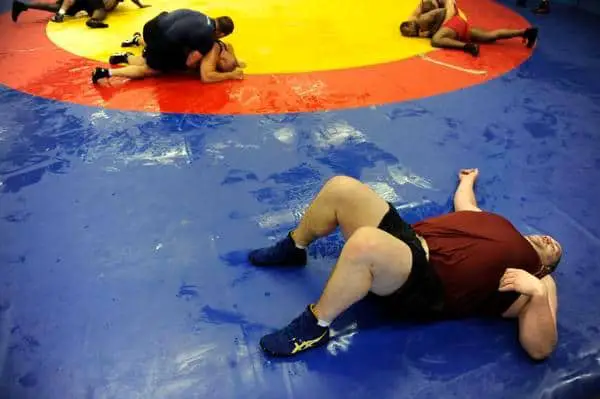
The great thing is the human body is highly responsive to athletic training. Within a couple months of BJJ training you can transform your fitness levels to the point where you are capable of crushing a standard Jiu Jitsu workout.
While not being totally out of shape will help you, there is no point delaying your BJJ journey by spending months running up hills and throwing around kettlebells. You can focus on those general exercises once you have already started your BJJ training.
If you are concerned about your fitness levels before starting BJJ, you will be happy to know that you can easily modify your Jiu Jitsu workout to ensure you complete it.
Simple modifications you can employ include reducing the intensity of the warm up. Instead of doing 30 push ups just do 20. Instead of doing sprints at 90%, do them at 70%.
When drilling, take it slow and concentrate on using the correct body mechanics and momentum. Do not try to muscle techniques, not only is it incorrect but will leave you exhausted.
Nearly all of the techniques in BJJ can be performed slowly and with little power or strength. This is great for beginners who have low levels of fitness as their limited endurance won’t be drained by constantly having to explode.

Unfortunately, many beginners struggle to grasp this concept. When they struggle to perform a technique correctly they then increase their speed and power. The result is that the technique is still being done incorrectly but now they are also tired.
If you want to prolong your cardio and improve your BJJ make sure you practice the techniques slowly and without the use of power and strength.
When sparring, start off slow and limit the number of rounds you do. When you are first starting BJJ it is totally acceptable to only spar 1 or 2 rounds and then call it quits.
Beginners need to remember that BJJ is a marathon. There is no point showing up to BJJ and killing yourself and then waking up the next day too sore to train. The secret to getting good at BJJ is consistent training, multiple times a week for many years. To achieve this training volume requires pacing.
Conclusion
BJJ will test your cardio and being in shape will make your initial BJJ training sessions less painful. However, the only way to develop fitness for BJJ is by training BJJ. Sports specific training is a must for building Jiu Jitsu cardio.
If you are having second thoughts about starting BJJ because of being out of shape just start training today! You can always pace yourself if the workout becomes too hard and within 2 to 3 months your body will adapt, allowing you to crush your BJJ training.
